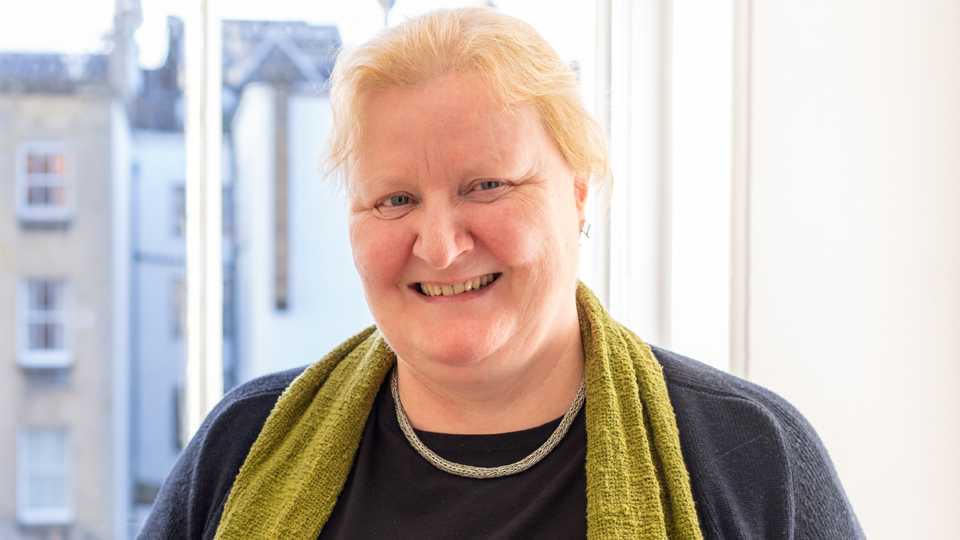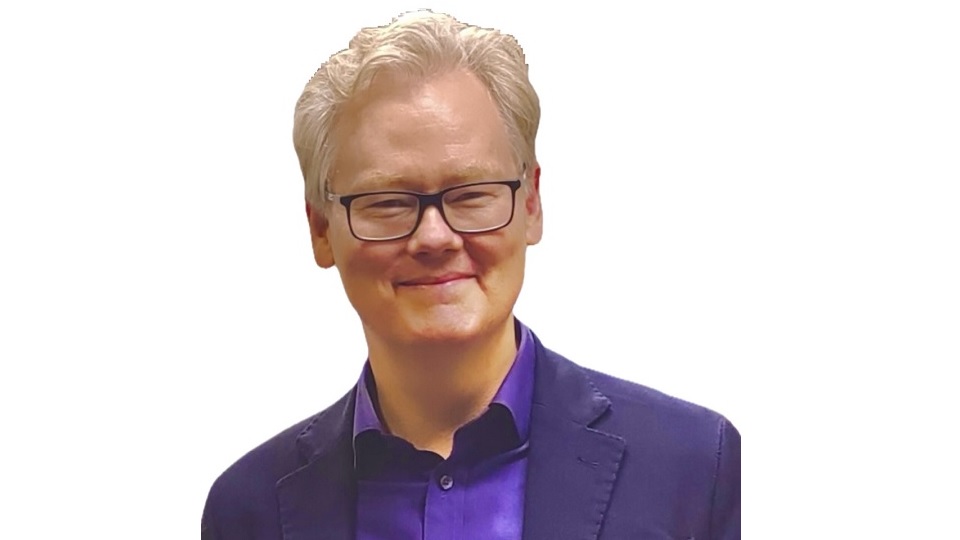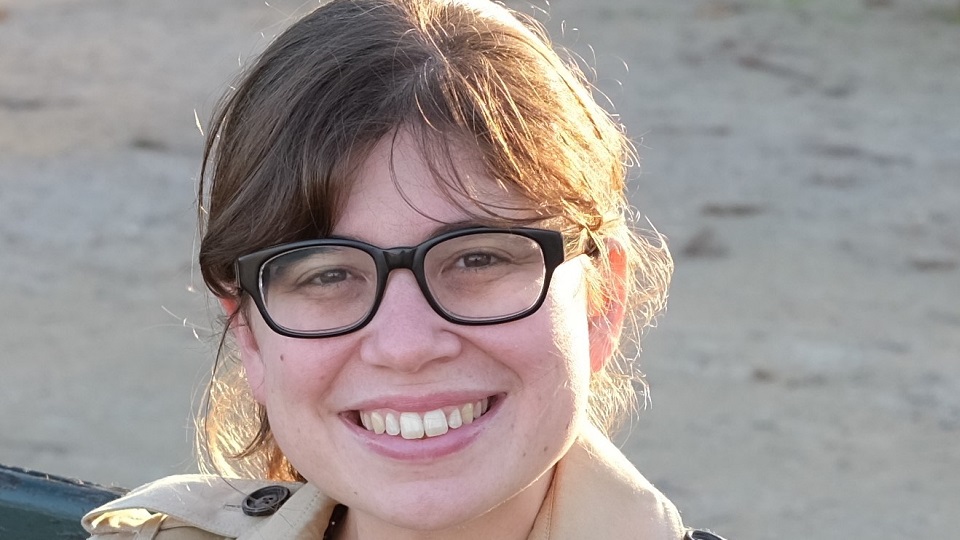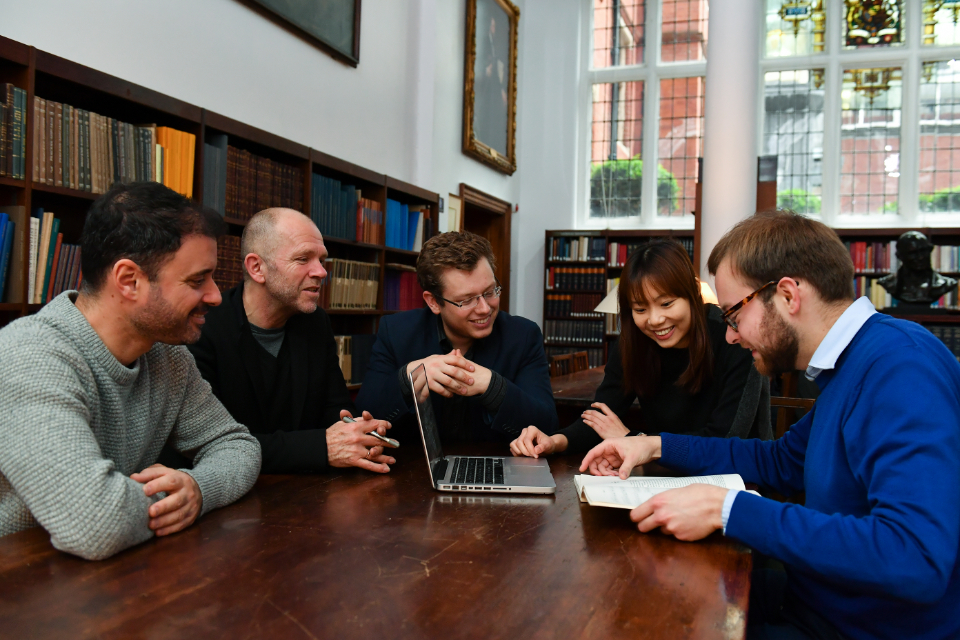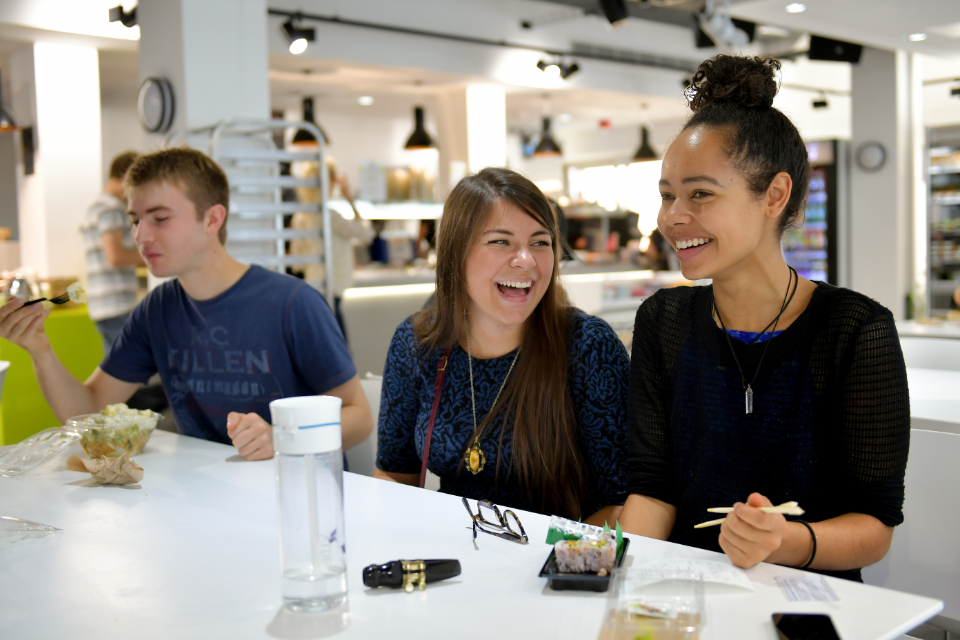Master of Science in Performance Science
UCAS code (1 year)
715F
UCAS code (2 years)
715P
UCAS code (modular flexi-route)
715M
Start date
September 2024
Duration
1 year full-time, 2 years part-time or modular flexi-route
Timetable
All classes are scheduled on Thursdays during RCM term times
Learning & Teaching Opportunities Entry requirements How to apply Enquiries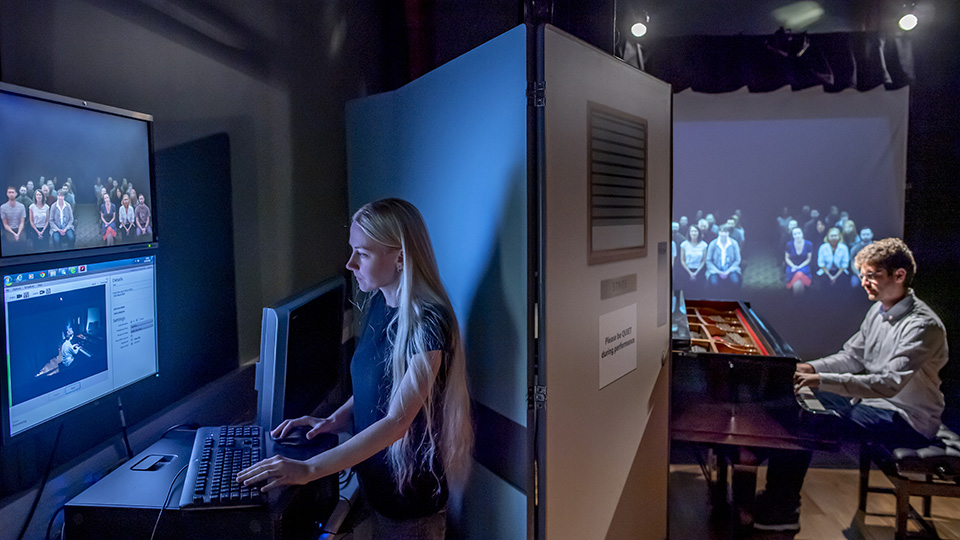
We are currently accepting applications for September 2024 entry. Please apply now via UCAS or contact our friendly Admissions team to discuss your application.
RCM students experience extensive professional and collaborative networking opportunities, one to one teaching with internationally renowned experts in performance science, access to latest research and world class facilities including an advanced Centre for Performance Science and a new £1.9 million Performance Laboratory which includes an advanced performance simulator.
This dynamic programme benefits anyone who is motivated to gain scientific understanding of how music is created, learned, performed and perceived, including performers, teachers, and arts leaders aiming to progress their current careers through continuing professional development.
This programme is also an ideal base for those wishing to pursue doctoral research and/or teaching in performance science, music psychology, arts and health, musicians’ health, or in any area in which knowledge of scientific methods and techniques would be an advantage.
Find out more about applying here for 24/25 entry.
Advanced learning opportunities
From the very beginning, students draw on exceptional resources and unique opportunities for learning, such as the RCM Library, the RCM Museum, the Centre for Performance Science, Performance Laboratory, Creative Careers Centre and RCM Sparks and our extensive outreach and education programme.
Introduction to the RCM's Master of Science degree
Students and staff discuss the wide variety of experiences and opportunities afforded by the Centre for Performance Science and the supportive atmosphere on the MSc course.
Learning & teaching
The programme is taught through a series of seminars and tutorials organised around core study modules.
Additional one-to-one studies are available for an additional fee. If your application is successful you will be eligible to audition when you start your programme at the RCM.

Royal College of Music courses are internationally recognised as full degree courses with successful students awarded their qualifications under the RCM's Royal Charter.
The MSc is taught by a range of academics, including those undertaking active research, who are regarded as world-leading experts in their disciplines. You may also be taught be external specialists and have the chance to learn with visiting artists and scholars.
The staff listed below oversee important areas of learning and teaching on our Masters programme.
Opportunities
From the very beginning of the course you will be able to draw on exceptional resources and opportunities, such as the RCM Library, the RCM Museum, the Centre for Performance Science, Creative Careers Centre and RCM Sparks – our outreach and education programme.
The Centre for Performance Science houses the RCM’s Performance Simulator, an internationally distinctive training facility that offers musicians opportunities to practise their performing, auditioning, and research skills.
The Royal College of Music is proud to offer its students fantastic practice and performance facilities with resources to support teaching and learning. We continually improve our facilities to ensure RCM students have the best opportunities.
Explore our facilities with a video tour of the RCM
Key facilities at the RCM include:
- The Amaryllis Fleming Concert Hall - our primary performance venue for orchestras and large ensembles.
- Our 400-seat Britten Theatre, home to the RCM’s thriving International Opera School.
- A new Performance Hall, offering an alternative space for ensembles, with a retractable stage, Fazioli grand piano and variable acoustics.
- Intimate spaces for solo and chamber performance in our Performance Studio and Parry Rooms.
- Sound-proofed Amadeus Music Pods for private practice.
- A purpose-built percussion suite – you can watch a video tour on YouTube.
- Over 160 pianos, including 60 grand pianos and 20 early keyboards, as well as organ rooms.
- A Blüthner Practice Suite which holds ten Blüthner Model A upright pianos.
- Instrument surgeries including luthier services.
- RCM Studios: a commercial-grade facility, enabling live broadcasts around the world.
- Digital Innovation Lab: advanced recording and mixing suite.
- RCM Library with more than 200,000 scores, books and recordings in its lending collection, as well as access to more than 400 music journals.
- Recently refurbished RCM Museum, holding more than 14,000 instruments, portraits and images, as well as a climate-controlled performance space and the associated Wolfson Centre in Music & Material Culture | Royal College of Music (rcm.ac.uk)
MSc graduates typically go on to further research programmes or careers and/or continue with portfolio careers in the music and performance industries.
The RCM’s Creative Careers Centre, which is recognised internationally for its innovative approach to supporting young musicians, provides an unparalleled service to current students and recent alumni. The dedicated team partners with leading consultants, reputable arts organisations and local communities, delivering unique career-building opportunities and a direct route to the music industry.
The work of the Creative Careers Centre allows students to discover their professional identity, gain hands-on experience and new skills, develop an entrepreneurial mind-set and build a fulfilling professional portfolio.
Extensive performance and teaching opportunities are available, as well as valuable guidance on CV and biography writing, concert programming, communication skills, project management, marketing and publicity, online promotion, financial matters and how to develop a business idea.
Course reviews
RCM courses are reviewed annually in response to student and external examiner feedback, which sometimes results in minor changes, such as the availability of particular modules. A more thorough review is undertaken every five to six years, after which more substantial changes may be made while maintaining the ethos that underpins the course. Our review process is part of the RCM’s continued commitment to provide the best possible education and music training. The information provided here reflects the official course outline as it currently stands. In the event of alterations following a review, we will update this page as soon as possible.
Entry requirements
Candidates normally require an undergraduate degree with a 2:1 class or above (or equivalent international qualification) in music, another performing art, or a subject related to performance science, such as education, psychology, sociology, or biology.
The RCM welcomes applicants from all backgrounds and alternative qualifications may be considered. If your qualifications are not listed here, please contact our Admissions team, who will be happy to discuss your suitability for the programme.
English language requirements
All applicants must be able to demonstrate that their level of English language ability meets the Royal College of Music’s minimum requirements in order for their application to be accepted.
If you require a visa to study at the RCM, you must meet the English language requirements before the RCM is permitted to sponsor your visa application.
How to apply
We are currently accepting applications for 2024 entry until the end of April.
You must submit your application for entry through UCAS Conservatoires, where you can apply simultaneously to all the institutions that are members of Conservatoires UK. You can track your application, find out when your interview is and get the results of your application all on UCAS. You can also confirm your decisions online.
Guidance on completing your application form is available on the UCAS Conservatoires website. As part of your application you will require two academic references. Referees should comment on your academic abilities and suitability for the MSc rather than your performance skills. You must enter your referees’ details into the application, and an automated e-mail will be sent to them requesting a reference. The second academic referee can be entered in the “practical reference” field. Only once your referees have responded will your application be forwarded to the RCM, so it is important to begin your application in good time. Further guidance is available from UCAS Conservatoires if you think your referees may not be able to provide a reference in time.
Candidates are required to pay an assessment fee of £50. All assessment and application fees are paid online through UCAS Conservatoires.
Additional one-to-one studies are available for an additional fee. If your application is successful you will be eligible to audition when you start your programme at the RCM.
UCAS Conservatoires application fees - 2025 entry
Using UCAS Conservatoires incurs a £28.50 application fee. This is in addition to our assessment fees. You cannot use another system and both the application and assessment fees are paid online through UCAS Conservatoires. If you encounter any problems with their payment system please contact their support team.
RCM Audition fee waivers (59 kb)
If you change your mind about applying, you can contact UCAS Conservatoires to cancel and request a refund. To be entitled to a refund you must cancel within 14 days of the date you submitted your application. You can find further details about how to do this, and also information about amending your application details, on the UCAS Conservatoires website.
Interviews
Shortlisted applicants will be invited for an online interview. The interview gives you an opportunity to explain your interest and motivation for undertaking postgraduate studies in performance science and to discuss any particular areas of interest in the field you may have. The interview also gives you the opportunity to find out more about the programme in particular and studying at the RCM in general.
We appreciate that some candidates may not have prior experience in all areas covered on the programme; however, we expect applicants to be familiar with some of the performance science literature, as well as concepts in empirical research.
We do not offer interviews in person for the MSc in Performance Science at any of our venues.
Writing sample
As part of the application process, candidates will be requested to submit a short writing sample in advance of their interview.
This can be any example of your academic writing, such as an essay you may have completed within a previous degree, and does not need to be directly related to performance science. However, should you feel that you do not have any appropriate previous writing, we can provide a topic on which to write approximately 1,000 words.
The aim of the writing sample is to assess your ability to write critically at a postgraduate level.
Suggested Reading
Clarke E, Dibben N, & Pitts S (2009), Music and Mind in Everyday Life, Oxford University Press, ISBN 9780198525578. (See OUP.)
McPherson GE (2006), The Child as Musician, Oxford University Press, ISBN 9780198817154. (See OUP.)
Parncutt R & McPherson GE (2002), The Science and Psychology of Music Performance, Oxford University Press, ISBN 9780195138108. (See OUP.)
Williamon A (ed.) (2004), Musical Excellence, Oxford University Press, ISBN 9780198525356. (See OUP.)



